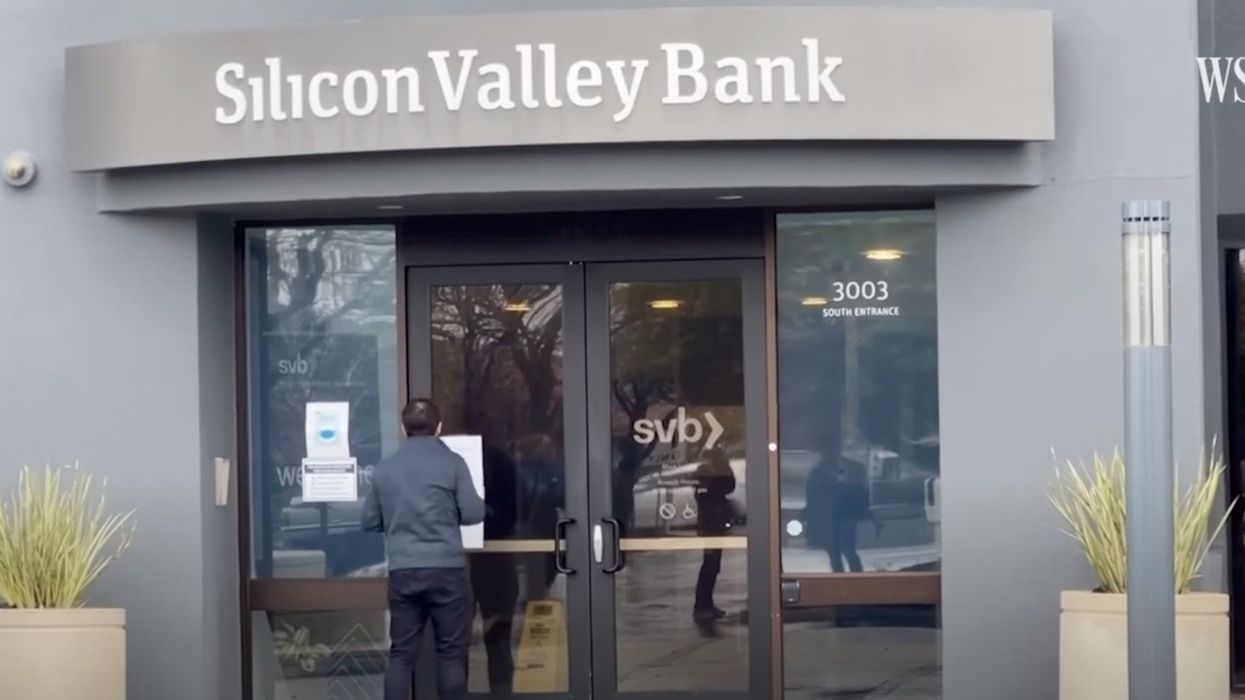The 'Anti-Woke' Right-Wing Bank That Promptly Went Bankrupt
What do you want your bank to be? I want mine to be nearby. I want it to have nice tellers. I want my deposits to be government insured in the event of a failure. Check, check, check.
Should I worry that my bank is too woke, whatever anyone means by "woke" these days? Right-wingers are peddling the argument, tailored for the rubes, that when financial institutions factor such concerns as the environment, social equity and governance (ESG) into their business, they are endangering themselves.
Donald Trump Jr. tweeted that the failure of Silicon Valley Bank "is what happens when you push a leftist/woke ideology and have that take precedent over common sense business practices." Wonder how he would explain his father's six bankruptcies. Leftist ideology was probably not behind them, but something must have taken precedence over "common sense business practices."
Wall Street Journal columnist Andy Kessler, noting that SVB's bank board was 45 percent women and had one Black and one "LGBTQ+" member, opined that SVB may have been "distracted" by diversity concerns. It happened that the board was over 50 percent white and male, but hey.
If a private company adopts policies and hiring practices antithetical to its business interests, then it suffers. That said, the executives and stockholders at Bank of America, JPMorgan Chase, and Citigroup — companies accused of wokeness — are doing quite well, thank you.
One of SVB's big customers was Peter Thiel's Founders Fund. Thiel is a multibillionaire entrepreneur and major backer of Donald Trump and other right-wing pols. SVB went under because of problems in risk management.
As for his banking acumen, Thiel had previously put millions in GloriFi, an "anti-woke" bank that collapsed in a spectacular manner. It seemed a group of super-rich investors thought they could make some bucks marketing a bank for "plumbers, electricians and police officers" who are "fed up with big banks that don't share their values." The idea of peddling patriotic banking to the little guys was born in some festive plutocratic gatherings held in the 16,000-square-foot Dallas home of investor Toby Neugebauer.
GloriFi was to offer the usual banking services: accounts, credit cards, mortgages and insurance. But the hook was the claim it would give good Americans the freedom to celebrate "love of God and country." It was offering "respect" for people they insisted "don't feel loved," Neugebauer said. Flags and pictures of blue-collar workers surrounded by family filled its website.
One thing GloriFi was not offering the plumbers, electricians or police officers was advantageous interest rates.
Having burned through $50 million, GloriFi shut down last November under a fusillade of anti-woke mismanagement. For example, it tried but failed to make credit cards out of the material used for shell casings(!). Neugebauer abused its employees when in his cups, which was a lot of the time, according to The Wall Street Journal.
GloriFi stiffed vendors. (Would that include electricians and plumbers?) It did provide work for police who were called to a P.F. Chang's in Dallas, when Neugebauer angrily threatened to ruin the life of a high-ranking employee who wanted to leave the company.
GloriFi must have had Bank of America quaking with fear.
The enterprise shut down last November, right after Thiel spent $32 million trying to elect a Congress to his liking. The super-patriot was also obtaining a passport from Malta. That gave him citizenship in four countries.
As Thiel apparently sees it, America is where you make your money, not where you pay taxes. (He used a chink in U.S. tax law to shelter $5 billion from federal taxes.) Paying taxes, after all, is a job for the plumbers, electricians and police officers.
Follow Froma Harrop on Twitter @FromaHarrop. She can be reached at fharrop@gmail.com. To find out more about Froma Harrop and read features by other Creators writers and cartoonists, visit the Creators webpage at www.creators.com.
Reprinted with permission from Creators.












